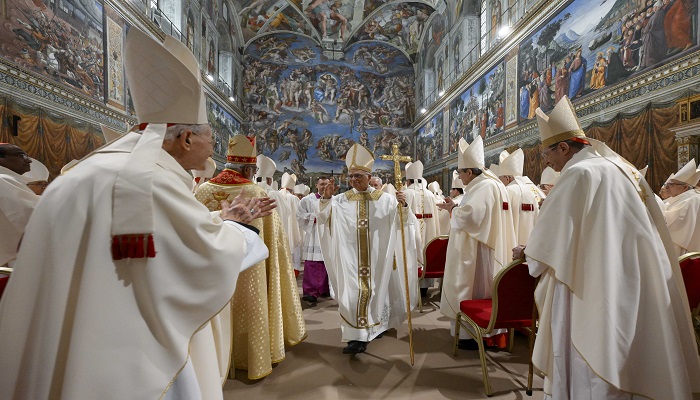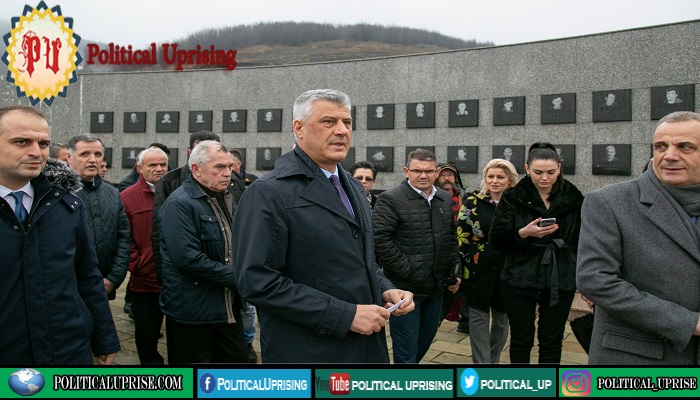Italy is facing mounting economic and social challenges as it navigates trade tensions with the United States and grapples with growing protests over a controversial new security bill.
The Italian government is under increasing pressure to address the fallout from a 29% tariff hike imposed by the U.S. while simultaneously dealing with domestic unrest sparked by new legislation aimed at tightening law enforcement measures.
Economic Strain: IMF Warning and U.S. Tariffs
On the economic front, Italy’s Economy Minister, Giancarlo Giorgetti, has warned against retaliatory tariffs on the U.S., urging for a diplomatic de-escalation of the trade dispute. Speaking at a business forum near Milan on Saturday, Giorgetti emphasized that counter-tariffs could be damaging for Italy, already grappling with a fragile economic recovery.
“We should avoid launching a policy of counter-tariffs that could be damaging for everyone and especially for us,” he said, calling for a cool-headed approach.
National emergency in Italy blocking ports for refugees
The ongoing trade tensions stem from U.S. President Donald Trump’s announcement of sweeping import duties on several countries, including Italy, in a move that could hurt Italy’s already weak economy.
The European Union has been urged to support member states like Italy by allowing more budgetary flexibility in light of the potential economic strain caused by the tariffs.
Giorgetti’s call for the EU to allow Italy to raise spending without breaching fiscal rules is aimed at cushioning the economic impact.
Italy, which already has one of the highest levels of public debt in the Eurozone, is projected to experience limited growth in 2024, with the Bank of Italy forecasting only 0.5% growth, far below the government’s earlier estimate of 1.2%.
This situation is further compounded by Italy’s high debt, projected to rise to nearly 138% of GDP by 2026.

In response to the economic slowdown, Italy is looking for ways to support its domestic industries, particularly those in sectors like textiles that may be hit hardest by U.S. tariffs. However, Giorgetti clarified that the government is not considering a special financial package for local businesses at this time.
Instead, the focus is on policy-based solutions and diplomatic efforts to minimize the impact of the tariffs while protecting the country’s trade interests.
Protests Over New Security Bill
While Italy grapples with economic challenges, domestic unrest has been brewing over a new security bill approved by the government. The right-wing coalition government, led by Prime Minister Giorgia Meloni, passed the bill on Friday, which introduces stricter penalties for attacks on law enforcement and legal protections for security forces.
The decree also includes measures to expedite the eviction of illegally occupied properties, impose harsher penalties for fraud against the elderly, and increase penalties for pickpocketing and other petty crimes.
Italy’s Meloni Torn Between Trump and European Allegiance
“We promised a safer Italy, and we are keeping that promise. The government will continue to work with determination on this path,” Meloni wrote on X (formerly Twitter) following the bill’s approval. The bill aims to create a more robust and responsive law enforcement system, but critics argue that it is a move towards “punitive populism.”
The security bill has sparked significant opposition from various groups, including activists, opposition parties, and concerned citizens. Francesco Boccia, a member of the opposition Democratic Party, criticized the bill, describing it as a form of punitive populism that undermines civil liberties.
Protests erupted across Rome on Friday, with demonstrators gathering near the Pantheon to express their opposition to the new bill. As protesters attempted to march toward the prime minister’s office, they were met by police barricades, and tensions quickly escalated.

Clashes ensued when protesters threw bottles at police officers, resulting in injuries to two law enforcement officials. Despite the scuffles, protests continued in various parts of the city, with many Italians voicing concerns about the potential for excessive state control and erosion of individual rights.
Impact on Italy’s Political Landscape
The new security bill will require approval from both the lower and upper chambers of parliament to become law. If passed, it will have far-reaching implications for the relationship between the Italian government and its citizens, particularly in terms of civil liberties and police powers.
The legislation has also raised concerns about its potential to disproportionately affect marginalized communities and activists, especially those involved in climate protests, which have seen a rise in road blockades and other direct action tactics in recent years.
Italy’s anti-Salvini rally to counter emerging nationalism
Prime Minister Meloni, who has positioned herself as a staunch defender of law and order, has pledged to continue her government’s commitment to strengthening security in the country, despite the growing opposition. However, the protests indicate a significant divide in public opinion, with many Italians questioning the need for such stringent measures.
A Divided Italy
As Italy grapples with both internal and external challenges, the government’s response will be pivotal in determining the country’s political and economic future.
The potential consequences of escalating trade tensions with the U.S. and the fallout from the security bill protests could shape Italy’s trajectory in the coming months.
European Council president nominee played down Meloni’s vote against him
The IMF’s warning of the need for economic flexibility, combined with the domestic opposition to the security bill, puts the Meloni government in a delicate position.
Balancing the country’s economic recovery with the demands for tighter security measures will require careful navigation, particularly as the EU and international stakeholders continue to monitor Italy’s actions closely.
For now, Italy remains at a crossroads, facing the dual challenges of managing trade relations with the U.S. and addressing growing domestic unrest.
The coming weeks will likely determine whether the government can quell public dissent while tackling its economic vulnerabilities.



